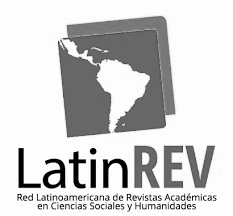Desde la conformación del Mercosur, documentos regionales y leyes nacionales de Brasil y Argentina han destacado la importancia de la enseñanza de las lenguas oficiales de este organismo como lenguas extranjeras que consolidarían el vínculo regional. Sin embargo, representaciones producto de diferentes ideologías lingüísticas han invisibilizado este vínculo. A partir de una perspectiva glotopolítica, hacemos dialogar materiales didácticos de portugués y de español que han circulado en las clases de lengua extranjera en la escuela argentina y brasileña, respectivamente, durante el periodo 2003-2015. Podemos concluir que, si bien hubo una incipiente visibilización de la región, las representaciones sociolingüísticas no destacaron el estatus de lenguas de la integración regional, sino que reforzaron otras ideologías: el español como lengua heterogénea de la hispanofonía y el portugués o bien asociado a Brasil, como territorio aislado de la región, o bien a la lengua de la lusofonía.
Palabras claves: representaciones sociolingüísticas - materiales didácticos - español en Brasil - portugués en Argentina
The official languages of Mercosur in high-school educational materials in Argentina and Brazil: a (failed) regional meeting
Since the creation of Mercosur, regional documents and national laws of Brazil and Argentina have highlighted the importance of teaching the official languages of this organization as foreign languages in order to consolidate the regional bond. However, representations that result from different linguistic ideologies have made this bond invisible. Based on a glotopolitical perspective, we confront the Portuguese and Spanish educational materials that have been used in the foreign language classes in argentinian and brazilian schools, respectively, during the period 2003-2015. We can conclude that, while there was an incipient visibility of the region, the sociolinguistic representations did not emphasize the language status of the regional integration, but rather reinforced other ideologies: Spanish as an heterogeneous language of the Spanish speaking world and Portuguese either associated with Brazil, as an isolated territory of the region, or with the language of lusophone countries.
Key words: sociolinguistic representations - educational materials - Spanish in Brazil - portuguese in Argentina


